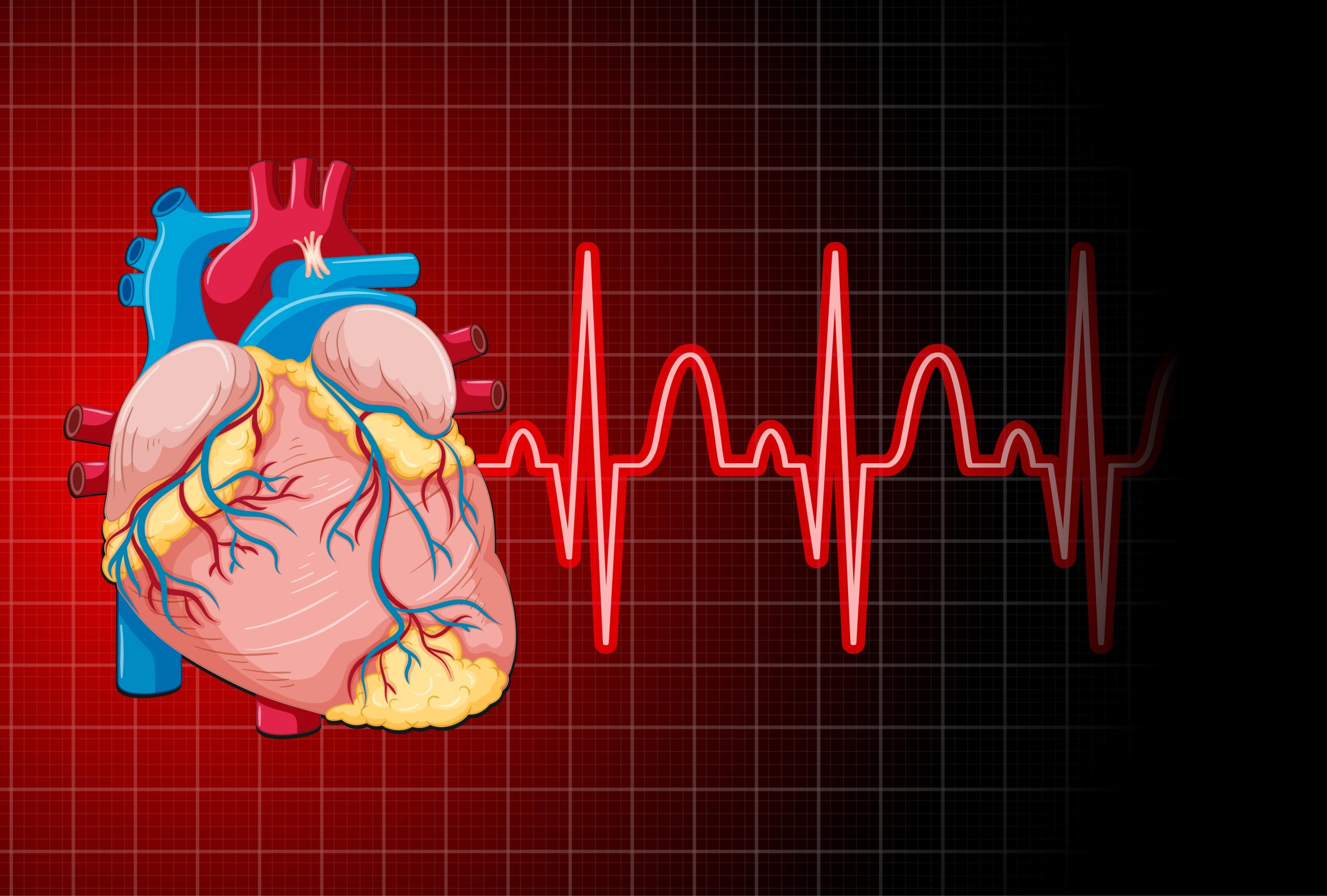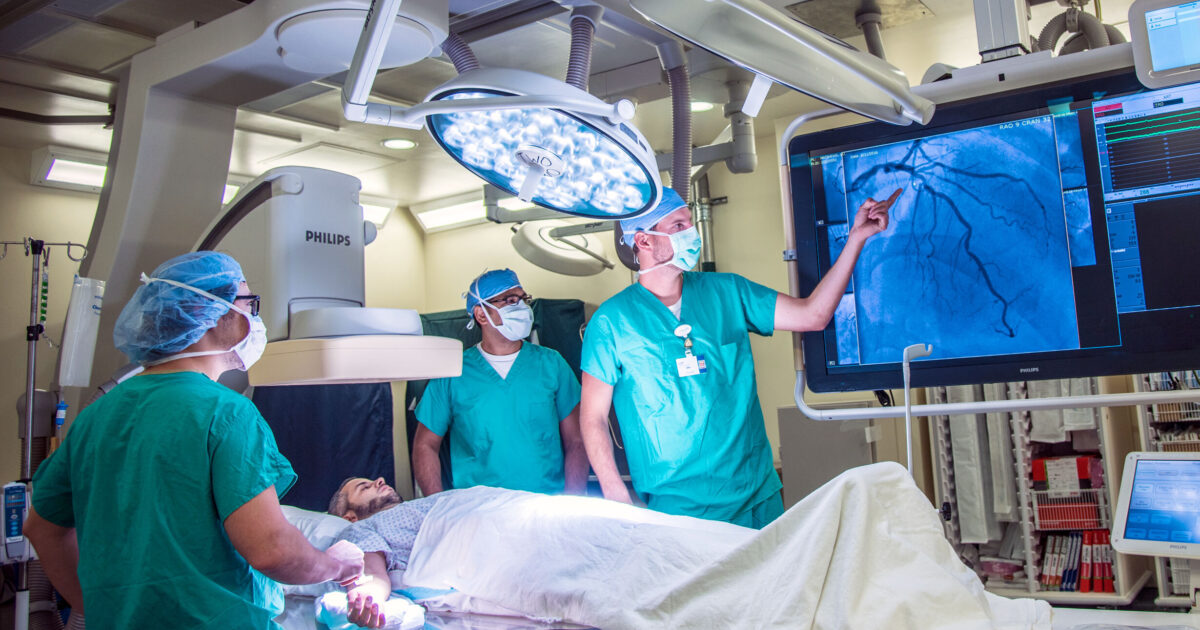Exploring the wider role of Cardiology in preventive health
Exploring the wider role of Cardiology in preventive health
Blog Article
Comprehending the Value of Cardiology in Modern Medical Care Providers
Cardiology plays a crucial duty in contemporary healthcare, particularly as heart problem remains to be the leading root cause of mortality worldwide. Breakthroughs in diagnostics and treatment have transformed client treatment, enabling earlier interventions and boosted results. Moreover, the shift in the direction of preventative cardiology encourages individuals to manage their health and wellness proactively. As innovation continues to progress, the combination of cutting-edge options may better redefine cardiology's influence on public wellness, triggering a closer evaluation of arising trends and their implications.
The Frequency of Cardiovascular Disease and Its Effect On Public Health
Although heart problem continues to be the leading reason of death around the world, its effect expands much past individual patients to influence public wellness systems and economic situations. The high occurrence of cardiovascular disease positions a considerable strain on health care sources, requiring increased financing for therapy, recovery, and prevention programs. Public wellness campaigns need to address threat variables such as excessive weight, smoking cigarettes, and sedentary lifestyles, which add considerably to the climbing incidence of heart conditions.Moreover, the financial burden connected with cardiovascular disease is tremendous, encompassing not only direct clinical expenses yet likewise indirect costs connected to shed productivity and premature death. Areas face obstacles in taking care of these costs, usually leading to disparities in medical care access and outcomes. As the population ages and lifestyle-related dangers remain to intensify, the seriousness for effective cardiology interventions becomes paramount. Resolving heart disease is not only a matter of individual health and wellness however likewise a vital public health and wellness priority.
Advancements in Cardiac Diagnostics and Imaging Techniques
Recent advancements in cardiac diagnostics and imaging techniques have actually reinvented the area of cardiology, boosting the ability to keep track of and spot heart conditions. Techniques such as cardiac MRI, CT angiography, and echocardiography have actually become significantly innovative, supplying in-depth pictures of heart structures and functions. These modalities permit the early recognition of problems like coronary artery disease, cardiac arrest, and valvular disorders.Moreover, improvements in non-invasive diagnostics, such as wearable innovation and remote monitoring tools, have equipped people and doctor. These tools assist in real-time tracking of heart rhythms and various other necessary indications, leading to prompt interventions. Additionally, expert system is being incorporated into imaging analysis, improving precision and performance in diagnosis.
Technologies in Therapy Options for Heart Conditions
Recent advancements in cardiology have actually led to significant innovations in treatment choices for heart disease. These include advanced surgical strategies that improve procedural outcomes and arising medications that supply brand-new avenues for therapy. As the area develops, these developments play an important duty in boosting client treatment and outcomes.
Advanced Surgical Techniques
Advancements in surgical methods have changed the landscape of cardiology, offering new wish for individuals with heart problems. Minimally intrusive treatments, such as catheter-based treatments, have significantly minimized recuperation times and hospital stays. Techniques like robotic-assisted surgical procedure improve precision, permitting specialists to navigate intricate physiological frameworks with higher precision. Additionally, innovations in imaging innovation facilitate real-time visualization during procedures, improving outcomes. Transcatheter aortic valve substitute (TAVR) exhibits an advancement in dealing with aortic stenosis, allowing valve replacement without open-heart surgical procedure. Additionally, hybrid approaches that incorporate catheter-based and medical techniques supply tailored services for numerous cardiac problems. These innovative surgical strategies not just enhance individual safety yet likewise increase treatment choices, emphasizing the crucial function of advancement in contemporary cardiology practices.
Arising Medications and Treatments
As the landscape of cardiology remains to develop, emerging medicines and treatments play an essential role in improving treatment options for heart problems. Innovations such as novel anticoagulants and advanced lipid-lowering representatives have changed the administration of cardiovascular illness, substantially minimizing client morbidity and death. Additionally, the development of genetics therapies and regenerative medication supplies appealing methods for treating problems previously regarded irreversible. Medical trials are consistently exposing the efficacy of these therapies, pushing the boundaries of conventional treatments. Moreover, the assimilation of electronic health and wellness modern technologies facilitates tailored medicine, permitting tailored treatment strategies based on genetic and lifestyle aspects. Collectively, these innovations emphasize the vibrant nature of cardiology, boosting person end results and redefining requirements of treatment in contemporary healthcare.
The Role of Preventive Cardiology in Individual Treatment
Preventative cardiology plays an important role in individual treatment by focusing on the recognition of danger variables that contribute to heart disease. Through way of living alteration approaches and early discovery techniques, health care carriers can successfully minimize the occurrence of cardio occasions - Cardiology care. This proactive technique not just enhances individual outcomes however also advertises lasting health and wellness
Threat Element Recognition
While heart diseases stay a leading reason of morbidity and mortality worldwide, efficient risk aspect recognition works as a cornerstone of precautionary cardiology. Recognizing threat factors such as hypertension, hyperlipidemia, household, and diabetic issues history is important for early intervention. Healthcare professionals utilize numerous evaluating techniques to evaluate these aspects, enabling customized precautionary procedures. In addition, comprehending an individual's way of life selections, such as smoking cigarettes and physical inactivity, additionally notifies threat analyses. This thorough examination makes it possible for medical professionals to establish individualized care plans focused on mitigating dangers. By prioritizing danger aspect identification, medical care systems can boost client end results and decrease the total burden of heart diseases, inevitably adding to boosted public health and wellness approaches and resource allotment.
Way Of Life Modification Techniques
A wide range of research studies highlights the crucial role of lifestyle alteration strategies in minimizing cardiovascular condition danger. These approaches encompass dietary changes, increased exercise, cigarette smoking cessation, and weight monitoring. By embracing a heart-healthy diet rich in fruits, vegetables, whole grains, and lean proteins, individuals can decrease cholesterol degrees and high blood pressure. Normal exercise enhances the heart and improves overall cardiovascular health and wellness. Furthermore, giving up smoking considerably lowers the risk of cardiovascular disease and boosts healing prices for those with status quo. Weight administration better contributes to cardio health and wellness by minimizing various other risk variables such as diabetic issues and hypertension. Implementing these way of life alters not only promotes private health yet likewise offers as a keystone of precautionary cardiology in individual treatment.
Very Early Detection Methods
Way of living alterations substantially add to reducing cardio illness threats, however they are most effective when combined with early detection strategies. Precautionary cardiology emphasizes the relevance of identifying potential heart issues prior to they intensify right into serious conditions. Strategies such as blood stress monitoring, cholesterol screening, and advanced imaging innovations like echocardiograms play essential functions in evaluating cardiovascular health. Biomarkers and genetic screening also enhance the accuracy of early discovery, permitting tailored precautionary techniques. Normal heart risk evaluations equip doctor to intervene proactively, possibly protecting against cardiac arrest and strokes (Cardiology Jupiter). By incorporating these very early detection approaches right into routine care, people can try this site take advantage of prompt way of living treatments and targeted therapies, inevitably boosting outcomes and improving top quality of life
Integrating Innovation Into Cardiology Practices
As advancements in innovation remain to improve various areas, the assimilation of innovative devices and systems right into cardiology practices has actually become important for improving person treatment and end results. Telemedicine platforms permit cardiologists to keep an eye on clients remotely, boosting accessibility to care while lowering the problem on medical care centers. Wearable tools, such as smartwatches, enable constant heart price tracking, notifying both individuals and medical professionals to prospective problems in real-time. Additionally, synthetic knowledge (AI) is being made use of to evaluate vast amounts of heart data, helping in very early medical diagnosis and individualized therapy plans. Advanced imaging methods, including 3D echocardiography, boost visualization of heart frameworks, resulting in much more precise treatments. Digital health and wellness documents (EHRs) improve client information administration, guaranteeing that cardiologists have immediate access to critical data. With each other, these technical developments are transforming cardiology, promoting positive administration and boosted health outcomes for people with cardio problems.
The Importance of Person Education and Involvement
Patient education and learning and engagement play an essential function in the monitoring of cardiovascular health. By outfitting patients with knowledge concerning their conditions, therapy alternatives, and way of living modifications, healthcare companies empower people to take an active function in their treatment. This positive technique can bring about enhanced adherence to recommended medications, nutritional changes, and exercise regimens, ultimately lowering the danger of complications.Engagement also fosters a strong patient-provider partnership, encouraging open interaction and count on. When clients really feel informed and entailed, they are most likely to voice problems and ask inquiries, which can lead to far better professional results. Furthermore, instructional resources, such as workshops or digital systems, can boost understanding and advertise self-management techniques. On the whole, focusing on patient education and involvement is necessary for improving cardiovascular health and wellness, enhancing quality of life, and decreasing health care costs connected with heart diseases.
Future Patterns in Cardiology and Their Prospective Impact

Often Asked Inquiries
What Way Of Living Adjustments Can Decrease Heart Problem Threat?
The current question addresses way of life modifications that can greatly lower heart illness danger. Dr Garcia. Adopting a well balanced diet, taking part in normal physical task, maintaining a healthy and balanced weight, handling anxiety, and preventing cigarette can notably improve cardio health and wellness
Just How Can I Identify Early Indicators of Heart Issues?
Identifying early indications of heart troubles entails tracking symptoms such as upper body discomfort, shortness of breath, exhaustion, and uneven heartbeat. Timely awareness of these indicators can trigger required clinical examination and intervention for much better end results.
What Are the Distinctions Between Cardiologists and Cardiac Surgeons?
The distinctions in between cardiologists and cardiac specialists depend on their duties; cardiologists largely take care of and detect heart conditions through non-invasive methods, while cardiac cosmetic Cardiology care surgeons carry out medical procedures to correct structural heart problems. Each plays a vital, distinct role.

Exactly how Frequently Should I Obtain My Heart Health And Wellness Checked?
The regularity of heart checkup varies based on private risk elements. Typically, grownups ought to undertake analyses each to two years, while those with existing problems may need more constant evaluations as recommended by healthcare professionals.
What Duty Does Genetics Play in Cardiovascular Disease Risk?
Genetics considerably influences cardiovascular disease danger, with domestic patterns indicating acquired conditions. Details genes can incline people to hypertension, cholesterol issues, and other cardiovascular troubles, highlighting the relevance of hereditary testing in assessing heart health and wellness. Heart illness stays the leading cause of death internationally, its effect prolongs much beyond specific patients to impact public health systems and economic climates. Public wellness initiatives should address danger variables such as obesity, cigarette smoking, and inactive lifestyles, which contribute significantly to the rising incidence of heart conditions.Moreover, the financial concern linked with heart disease is tremendous, including not just direct medical costs however additionally indirect expenditures associated to lost productivity and early mortality. Precautionary cardiology plays an essential function in individual treatment by focusing on the identification of risk factors that add to heart disease. Fabricated intelligence (AI) and device learning are boosting diagnostics and individual tracking, making it possible for early discovery of heart illness. The distinctions in between cardiologists and heart doctors lie in their roles; cardiologists largely manage see and detect heart problems with non-invasive methods, while heart surgeons execute medical treatments to correct architectural heart concerns.
Report this page